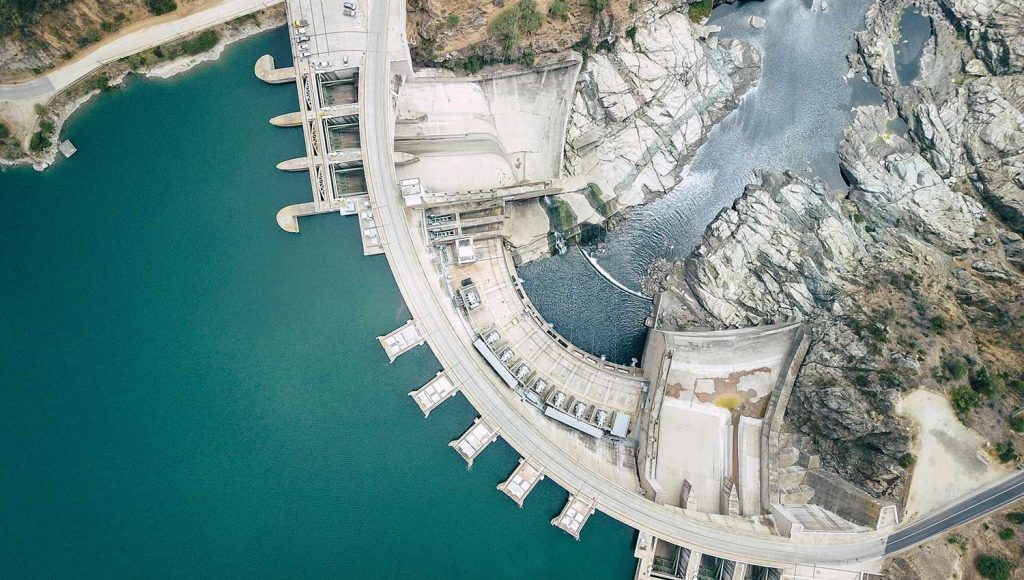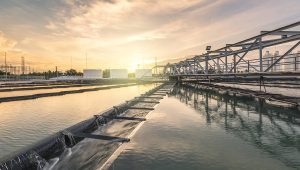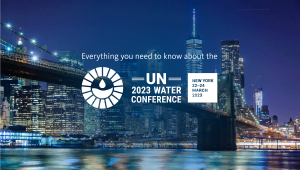Unpacking freshwater’s role: Climate mitigation measures in energy systems
The transition to renewable, cleaner energy sources is pivotal to climate security. This transition can provide opportunities to reduce pressure on water sources from the energy sector but can, at the same time, pose risks that increase demand on water. It is therefore critical to consider and integrate freshwater across all aspects of the development of renewable energy sources.

What is the role of freshwater in climate change mitigation?
This spring, Swedish Water House will host a webinar series diving into the chapters of the recently launched report “The essential drop to reach Net-Zero: Unpacking Freshwater’s Role in Climate Change Mitigation”.
In this webinar we will discuss findings from the chapter “Mitigation measures in energy systems”, and demonstrate the water-related climate mitigation potential and risks of low-emission energy transition plans.
Watch the recording
Enable cookies to show the video below. Or watch it directly on YouTube.
Agenda:
Welcoming notes
- Moderator Dr. Malin Lundberg Ingemarsson, Stockholm International Water Institute
Opening remarks
- Jinsun Lim, International Energy Agency
Chapter presentation
- Josh Weinberg, Stockholm International Water Institute
Water insights from Nationally Determined Contributions
- David Hebart-Coleman, Stockholm International Water Institute
Case studies
- Mitigation through biomass plantations may increase water stress – Fabian Stenzel, Potsdam Institute for Climate Impact Research
- Cross-scale water impacts of urban climate mitigation measures – examples from a Swedish urban CLEW nexus analysis – Rebecka Engström, RISE
Speakers:
Josh Weinberg is Program Manager at SIWI. Josh holds a MsC from the Resilience Center at Stockholm University in Natural Resource Management and Governance. He has extensive experience working in China, Europe and globally on broad range of issues within water and environmental governance.
David Hebart-Coleman is an environmental planning and policy expert, with over 15 years of experience in environmental policy development. His professional background is in local and regional government in New Zealand. Most recently, he provided water resources and climate change adaptation services as an expert within the African Water Facility in Cote D’Ivoire.
Jinsun Lim is Energy and Environment Policy Analyst at the International Energy Agency. Jinsun leads the work on climate resilience and climate change impact assessment of the energy sector. She is also responsible for coordinating IEA’s engagement at COP.
Fabian Stenzel is a Postdoctoral Researcher at the Potsdam Institute for Climate Impact Research. His work focuses on the topics global risks of biosphere degradation, planetary boundaries, and water demand for bioenergy plantations.
Rebecka Engström is a researcher within the unit of energy and environmental systems analysis at the Swedish Research Institute, RISE. Her work includes investigating the interconnections between climate mitigation, energy system development, water management and urban sustainability.
Malin Lundberg Ingemarsson is Programme Manager at SIWI and is working on the links between water, landscapes, biodiversity and climate change. More recently, she has coordinated the work with the report “The essential drop to reach Net-Zero: Unpacking Freshwater’s Role in Climate Change Mitigation” and authored the chapter on climate mitigation measures for land systems.
Unpacking Freshwater's Role in Climate Change Mitigation
The UN 2023 Water Conference, which takes place in March this year, is an opportune moment to highlight the vital role of water in climate mitigation. Freshwater is a finite resource exposed to overexploitation and is being put under increasing pressure from the changing climate.
The report “The essential drop to reach Net-Zero: Unpacking Freshwater’s Role in Climate Change Mitigation” is the first ever summary showing the connections between freshwater and climate mitigation, and how they are inextricably linked. The report shows that water is much more important in mitigating climate change than previously understood. By considering freshwater in climate mitigation measures, water risks can be avoided, and win-win solutions for water and climate can be used to their fullest potential.
Read the report:
The essential drop to reach Net-Zero: Unpacking Freshwater’s Role in Climate Change Mitigation
The report is developed in joint effort by Stockholm International Water Institute (SIWI), Federal Ministry of Economic Cooperation and Development of Germany (BMZ), German Corporation for International Cooperation (GIZ), The Potsdam Institute for Climate Impact Research (PIK), United Nations Development Programme (UNDP) and Stockholm Resilience Centre (SRC).
Unpacking freshwater’s role
The report 'The essential drop to reach Net-Zero: Unpacking Freshwater's Role in Climate Change Mitigation' shows a new way of thinking about climate change that can lead to more effective solutions.
Explore the chapters










